When The Exorcist was released in the early 1970s, it shook the hearts of its audiences to their core. No one had ever seen such an intensely harrowing and transgressive horror film before.
The impact of The Exorcist was profound, sending shockwaves through the film industry and popular culture. It marked a significant departure from conventional horror films of its time, delving into themes of demonic possession, faith, and exorcism with a level of intensity and realism that had never been depicted before.
After 50 years, does The Exorcist still live up to the hype? What can existing fans expect from the new 4K transfer? Which version should newcomers see first? Find out in The Exorcist 4K review!
The Exorcist (1973)
Production Company: Hoya Productions
Distributor: Warner Bros.
Director: William Friedkin
Release Date: December 26, 1973
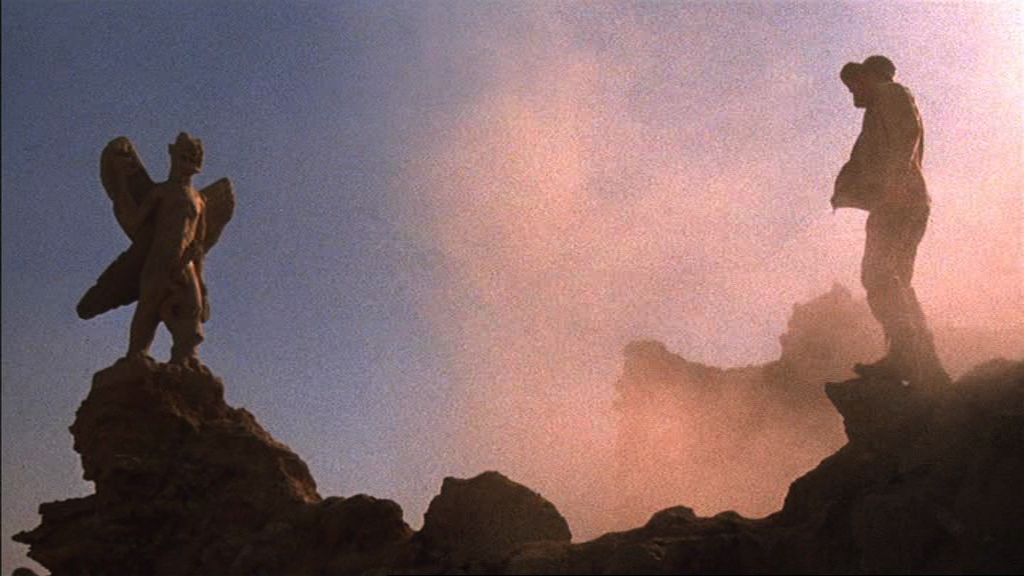
The Exorcist‘s groundbreaking special effects, chilling storyline, and outstanding performances led to a level of emotional and psychological terror that was unprecedented. The religious landscape of the 1970s was quite different from that of today. It was seen as a confrontation with deeply held beliefs, making it even more unsettling for those who watched it.
Reports of audience members fainting, vomiting, and experiencing emotional distress were common. Some theaters even provided barf bags for their patrons. This collective fear and visceral reaction only added to the film’s notoriety.
In contrast, today’s audiences have been exposed to decades of increasingly graphic and explicit horror content, desensitizing them to some extent. The shock value of The Exorcist has somewhat diminished as it paved the way for countless other horror films. What was once considered ‘the scariest movie of all time’ now faces the challenge of living up to its reputation in a world where extreme horror is more commonplace.
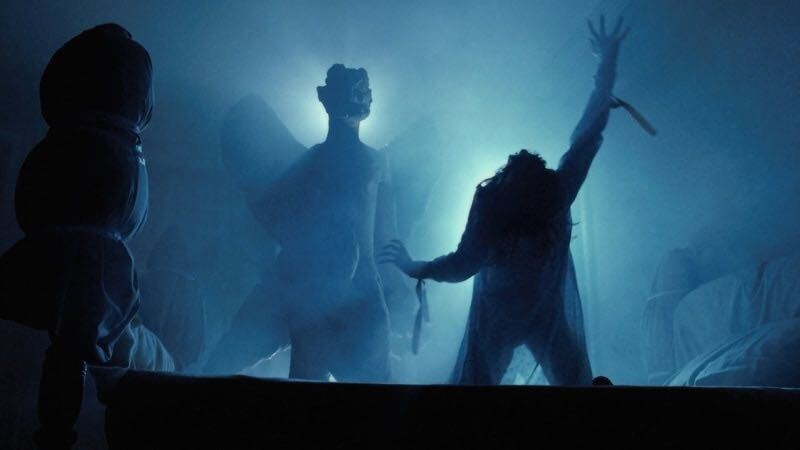
Despite modern audiences becoming numb to brutal violence and sexual vulgarity, The Exorcist is still powerfully effective, and much of it has to do with its pacing, editing, acting, and story. The Exorcist’s demonic possession story may be the main hook to draw in audiences, but the emotional core of the film wrestles with faith.
The faith themes are carried by two characters: Father Damien Karras (Jason Miller) and Chris MacNeil (Ellen Burstyn). Father Karras is a Jesuit priest who is having a crisis of faith. His mother is barely able to take care of herself and Damien is struggling to support her since he has taken a vow of poverty. He barely owns anything and apart from drinking, his other pastime is amateur boxing.
Chris is an actress and her daughter Regan (Linda Blair) begins to act peculiarly during the production of a film. Regan starts acting psychotic and extremely violent. Chris has no idea what to do and after having all psychology experts and neurologists examine her, every doctor throws their hands up in the air with no answer.
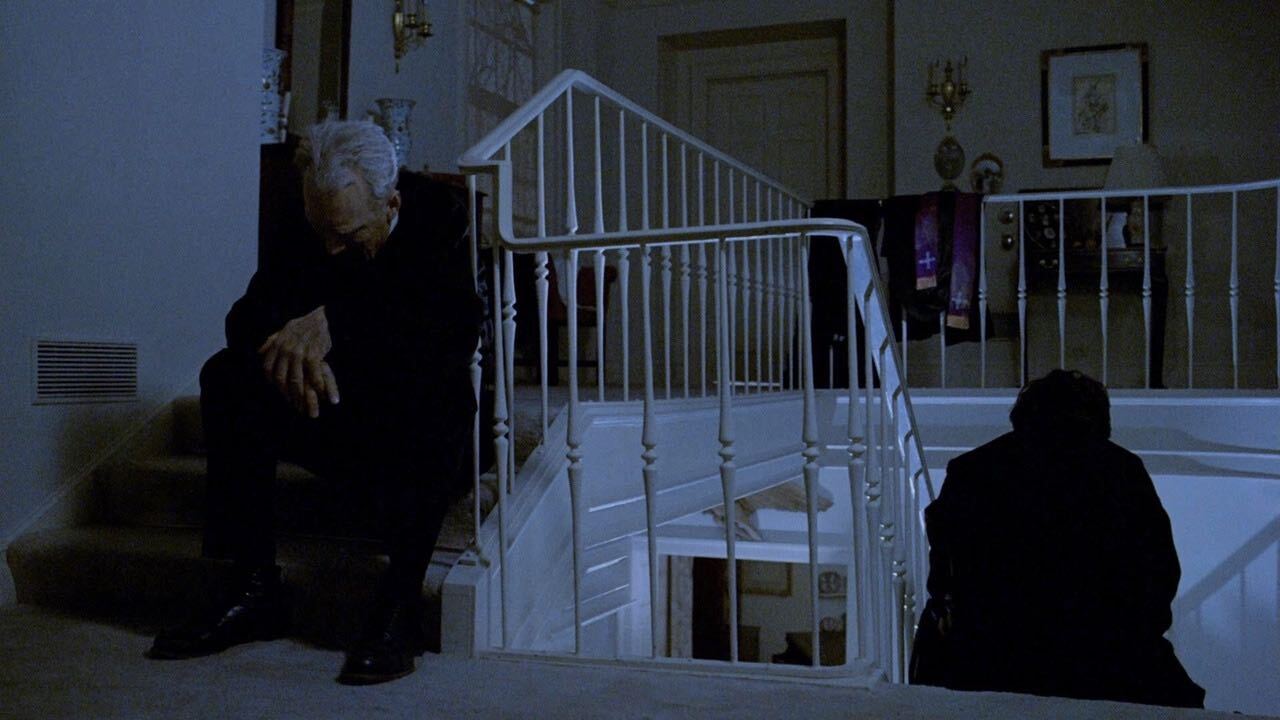
The Exorcist‘s story is not without its poetic irony. It’s the doctors who tell Chris to find a spiritual solution to Regan’s behavior. Father Karras gets roped into investigating the legitimacy of the possession and the film toys with the audience’s expectations.
The Exorcist keeps the possibility of demonic presence slightly open to doubt, leading to numerous theories about the film over the decades. Some believe that the possession is a symbolic metaphor for sexual abuse, as Regan exhibits many characteristics of abuse victims. The variety of interpretations for the film, and the fact that it is still debated, serve as a testament to its enduring power.
The film’s climax is still the best and most effective depiction of an exorcism. Max Von Sydow, in the role of Father Lancaster Merrin, is introduced at the start of the film during a very hypnotic sequence in Iraq that sets an ominous tone for the rest of the film. It isn’t until the final exorcism with the demon that Father Merrin returns, delivering the most iconic performance of his career.
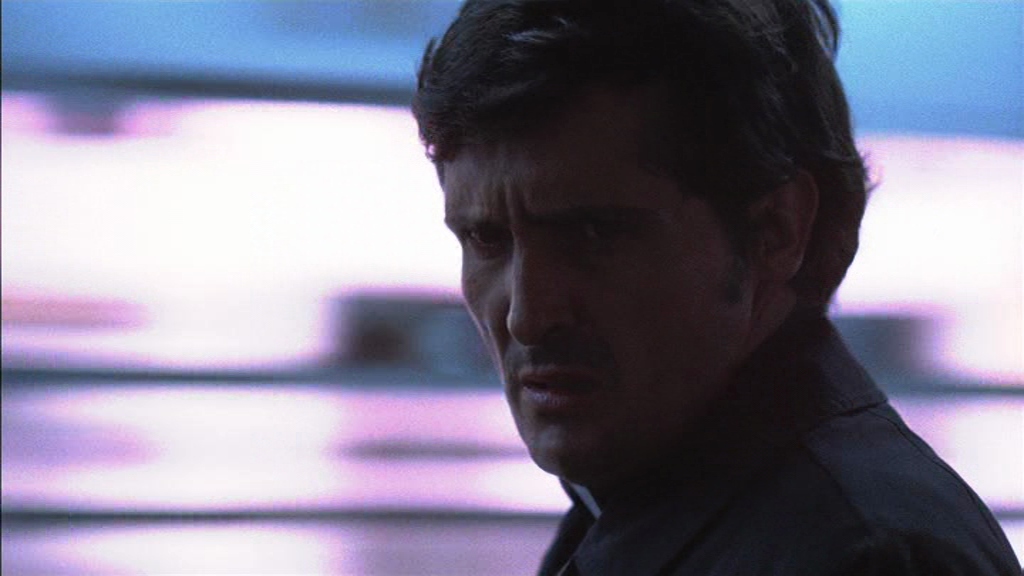
Sydow may be remembered as being the main exorcist in The Exorcist, but everyone is at the top of their game. Jason Miller is Karras. This was a role he was born to play and he looks like he is always carrying a terrible weight on his shoulders- even when he makes smartass remarks, it looks like he is suffering. There is nobody in the world who could have played this character.
Burstyn flawlessly captures a palpable sense of terror and panic. She is an atheist and her gut-wrenching desperation in seeking help from priests is unmistakable. The film’s scare factor largely is due to her acting, because the nightmarish stress this woman goes through is utterly tangible.
The Exorcist revels in a sense of helplessness and the unknown. The film is very grounded and feels real. Performances are understated and the shooting style resembles something out of a raw documentary. One of the most chilling scenes is the matter-of-factness of Regan getting an angiograph, where every second is agonizing and unbelievably drawn out.
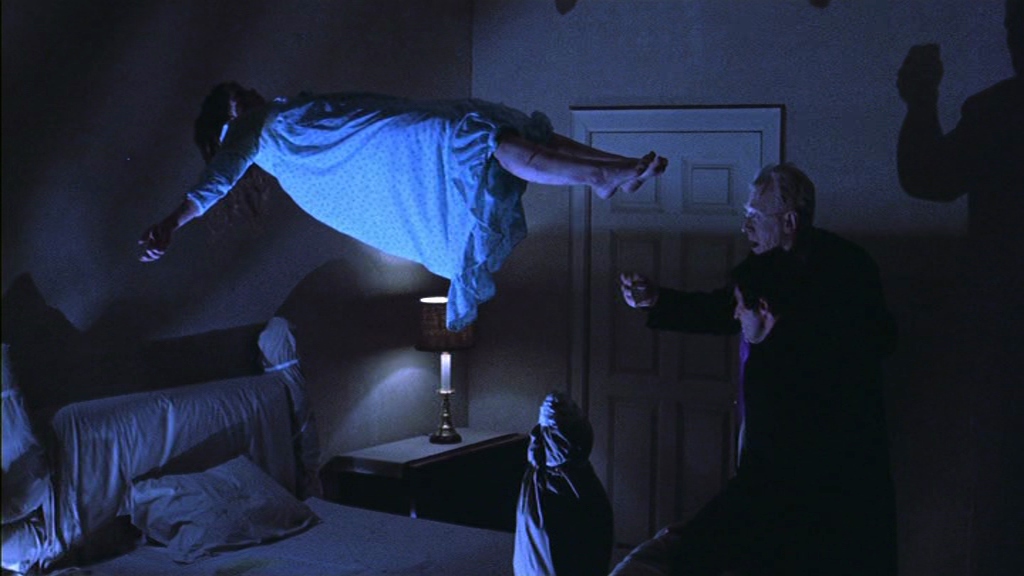
Friedkin’s direction is pitch-perfect. He has always been a crazy person and was willing to go to insane lengths to get the performances he needed from his actors, and the results speak for themselves.
Some of his methods included physically abusing some of the cast, and in one instance, he even fired a live round from a shotgun on set to elicit the desired reaction from Jason Miller, shocking him into the right performance.
While most people would object to Friedkin’s methods, it’s because of his extremely demanding directing style is how The Exorcist‘s performances elevate the film. This was the first horror film to ever be recognized by the Academy and managed to get 10 nominations. The only other horror film to garner as much prestige was Silence of the Lambs.
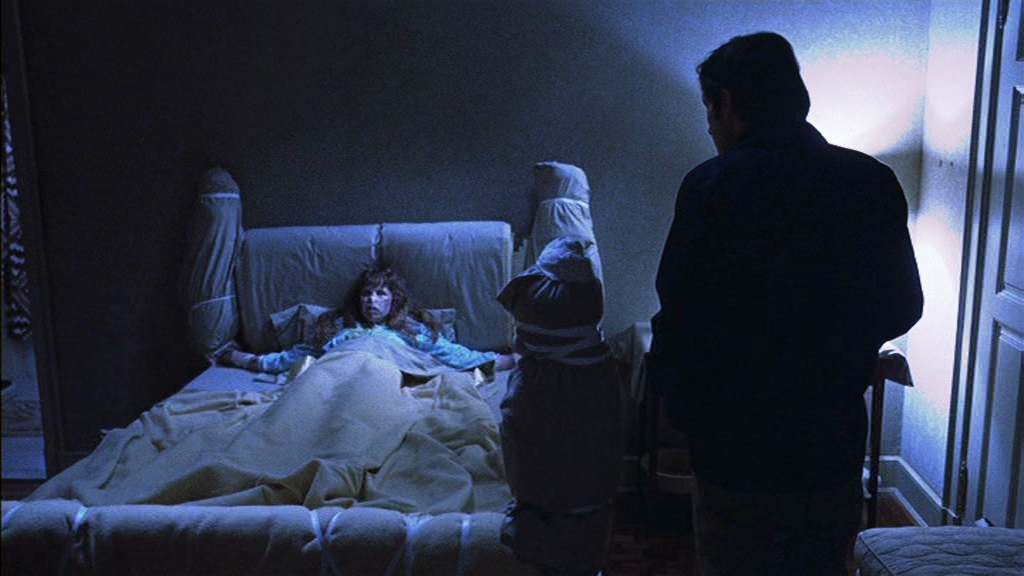
Dick Smith was one of the best in practical and make-up effects, and his work in The Exorcist still stands tall as some of the most impressive ever shot on film. Max Von Sydow was only in his 40s when he played Father Merrin, but it is easy to think he was always 70 years old due to the old man makeup plastered all over his face, which is the most convincing ever conceived.
There is no mention of The Exorcist without bringing up Smith’s effects to realize the possessed Regan. Linda Blair’s acting was already exceptional, but she completely vanishes in the ghoulish makeup that creates one of the most unsettling visages in film history.
This 4K remaster comes out on the film’s 50th anniversary and it has impeccable image quality with both versions (theatrical and extended) on two Ultra HD 100 GB discs. The remaster was done with the original 35 mm negatives and the proof can be seen in the shocking detail.
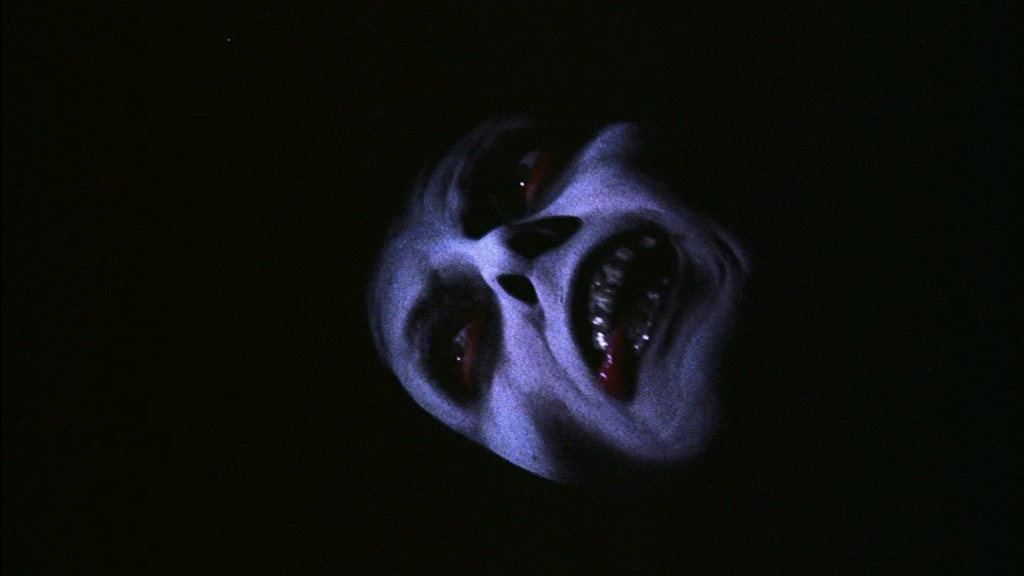
Both versions feature HDR10 presentation and boost the overall balance of the image quality. Black levels are exceptionally deep. Highlights are crisp. Individual fibers and stitches can be counted. The contrast is utterly lush and adds a palpable depth to the picture.
The fine and lively film grain’s texture will always remind the viewer that this is a 50-year-old film, but the sound mixing blows away most modern sound mixes. Prior HD releases of The Exorcist had a respectable 5.1, but this new iteration goes full Dolby Atmos, creating a 360-degree impression.
The new sound quality is one of the best aspects of this release. When Tubular Bells play, it feels like the instruments are being played in the room. During the exorcism, the voices scatter around the viewer like unseen phantoms.
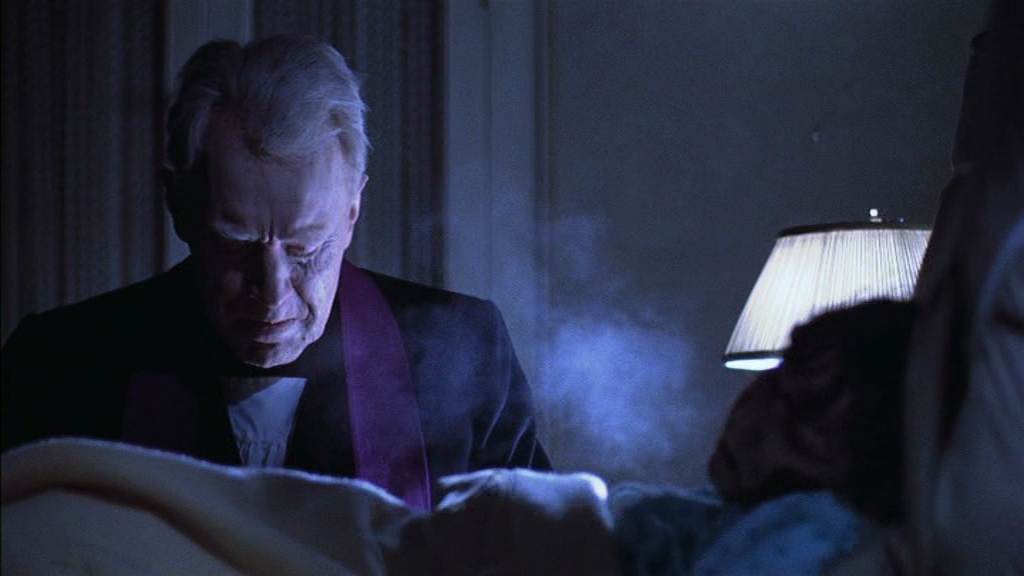
This 4K release of The Exorcist was so close to being perfect. Regretfully, it lacks all the extra features from prior releases, making this feel barebones. There is a ‘Collector’s Edition’ that comes with a third disc that contains all the documentaries and extra features, but that version costs $89.99. Anyone who still owns the 40th Anniversary Bluray should hang onto it since that contains most of the cut features.
Even worse than the cut bonus material is the heinous box art chosen for the standard release. Some savant at Warner thought it would be cool to use an awkward shot of Linda Blair, add a posterization effect, and increase the green saturation levels. It’s an unsightly cover that pales in comparison to the iconic shot of Sydow approaching the MacNeil household.
Presentation-wise, this 4K remaster of The Exorcist is perfect. It is Warner Bros.’ crown jewel in their filmography and they did it flawlessly with this transfer. It is disappointing that the bonus materials aren’t included with the standard release and that the cover art is embarrassing, but those who are only here for Friedkin and Blatty’s masterpiece won’t be disappointed.
The Exorcist was reviewed with a 4K Bluray purchased by Niche Gamer. You can find additional information about Niche Gamer’s review/ethics policy here. The Exorcist is now available on 4K Bluray at retailers.